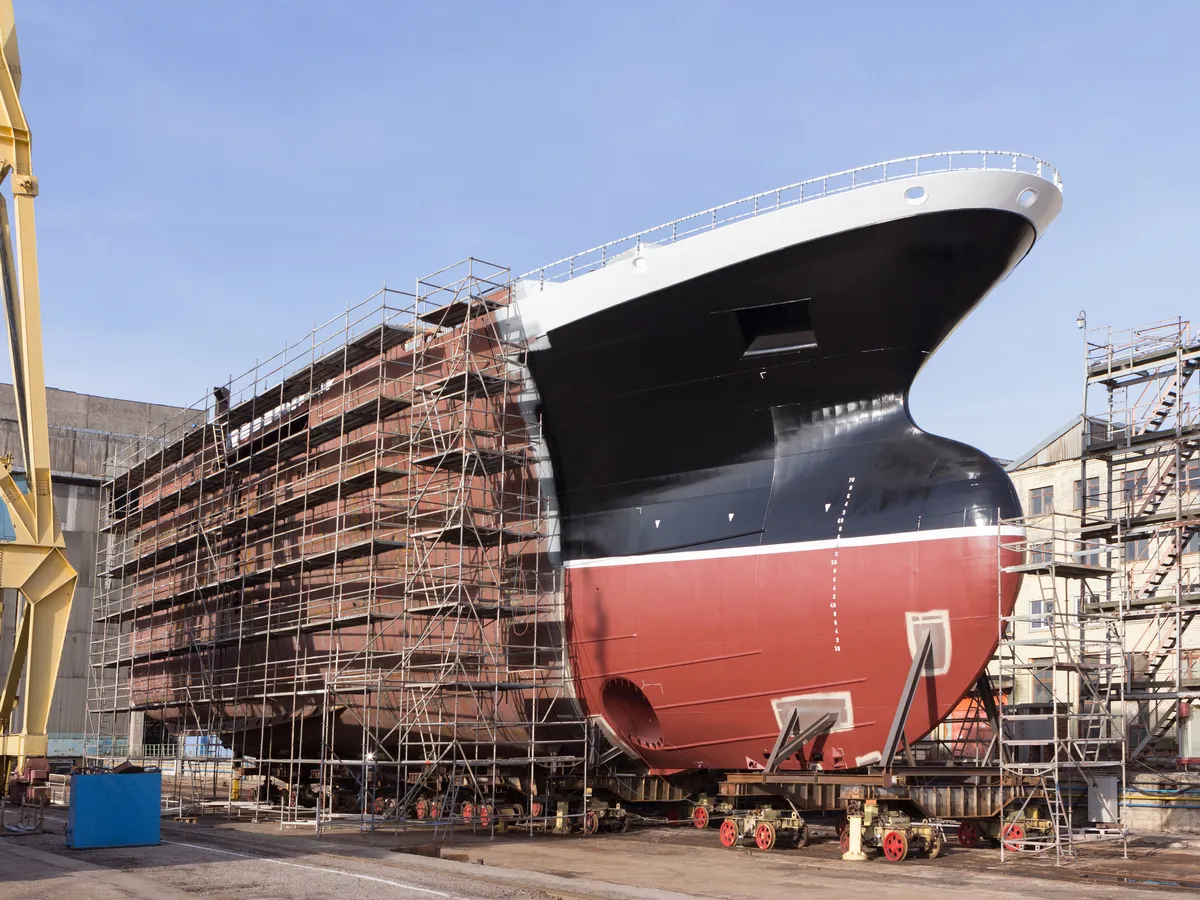Market News
Mazagon Dock vs Garden Reach vs Cochin Shipyard: Who outperformed in Q1FY26 earnings season?

4 min read | Updated on August 16, 2025, 11:12 IST
SUMMARY
India's defence shipbuilding sector is set for major growth, with expected order inflow worth ₹2.12 lakh crore by FY27. Mazagon Dock, Cochin Shipyard, and Garden Reach posted mixed Q1FY26 results. Among the three listed players, Garden Reach Shipbuilders led with double-digit growth in revenue and net profit.
Stock list

Garden Reach Shipbuilders led with over 60% year-to-date return.
India’s defence shipbuilding sector has been undergoing rapid growth in recent years, driven by the government's push for indigenous manufacturing and substantial investment. According to experts, the defence shipyards sector could see a threefold increase in new order inflow, with big-ticket orders worth ₹2.12 lakh crore by FY27, including repeat orders for submarines and small warships like corvettes and frigates.
Listed PSU shipbuilding companies, including Mazagon Dock Shipbuilders, Cochin Shipyard, and Garden Reach Shipbuilders, stand to benefit from this big-ticket order inflow. Higher order inflow is likely to benefit these companies' revenue and profitability.
Although the order inflow looks robust, but the same was not reflected in the June quarter earnings. In the recently concluded quarter, defence shipbuilding stocks posted mixed earnings.
Here’s a brief comparison of the Q1FY26 earnings of three listed defence shipbuilding stocks:
Financial snapshot: Q1FY26
| Company ( in crore) | Revenue | PAT | Market cap | EPS (₹) | Order book* | YTD return** |
|---|---|---|---|---|---|---|
| Mazagon Dock Shipbuilders | ₹2,626 (▲ 11% YoY) | ₹452 (▼ 35% YoY) | ₹1.09 lakh crore | 10.39 | ₹29,918 | 22.1% |
| Cochin Shipyard | ₹1,069 (▲ 38% YoY) | ₹188 (▲ 8% YoY) | ₹44,473 | 7.14 | ₹22,500 | 9.8% |
| Garden Reach Shipbuilders | ₹1,310 (▲ 29% YoY) | ₹120 (▲ 37% YoY) | ₹29,650 | 10.49 | ₹22,680 | 60.1% |
*The order book value is as of March 31, 2025, **YTD return as of August 15 closing
Mazagon Dock Shipbuilders
MDL has a strong position in strategic naval platforms; it's the only Indian shipyard to have built destroyers and conventional submarines for the Navy and among the first to manufacture Veer and Khukri-class corvettes. In Q1 FY25, the company’s revenue increased from ₹2,357 crore to ₹2,626 crore, with a fall of 35% YoY in net profit to ₹452.15 crore. A rise in total expenses by 35% YoY to ₹2,348 crore impacted the profitability during the quarter. Meanwhile, the operating margin fell sharply to 11.4% from 27.4% YoY, reflecting higher costs and lower operational efficiency.
Cochin Shipyard
With well-known international clients, including recent Master Ship repair agreements with the US Navy, CSL boasts a diverse portfolio that includes both shipbuilding and repair. The PSU firm reported a 38% YoY rise in revenue of ₹1,068.59 crore, while its consolidated net profit stood at ₹188 crore for Q1FY26, representing an 8% YoY growth.
Recent large contracts, such as a ₹1,200 crore defence refit order and a ₹250 crore order for two 70-ton bollard pull tugs for Polestar Maritime, along with an export contract for offshore vessels, have supported the company's order book.
Garden Reach Shipbuilders & Engineers (GRSE)
Among the three shipbuilder stocks, Garden Reach Shipbuilders delivered a standout performance. The company saw high double-digit growth in revenue and net profit, 29% YoY growth in revenue at ₹1,310 crore and net profit of ₹120 crore, up 37% YoY. Strong quarterly performance has also been reflected in the stock price as Garden Reach shares rose over 60% so far in 2025.
GRSE has a strong order book, with contracts to build two Coastal Research Vessels for GSI and the lowest offer for the Indian Navy's ₹25,000 crore Next Generation Corvettes project. Additionally, the company is expanding its capabilities through new technology partnerships, such as an MOU for advanced marine gearboxes with Reintjes GmbH.
Before you leave
With policy tailwinds, solid order visibility, and capacity enhancements, India's shipbuilding PSUs seem to be on the right track. Going by the stock returns, shipbuilder stocks have already been on investors' radar amid robust order inflow, PSU credibility, and government tailwinds. Having said that, in a capital-intensive sector, execution discipline, on-time delivery, and cost management will remain key differentiators.
About The Author
Next Story

